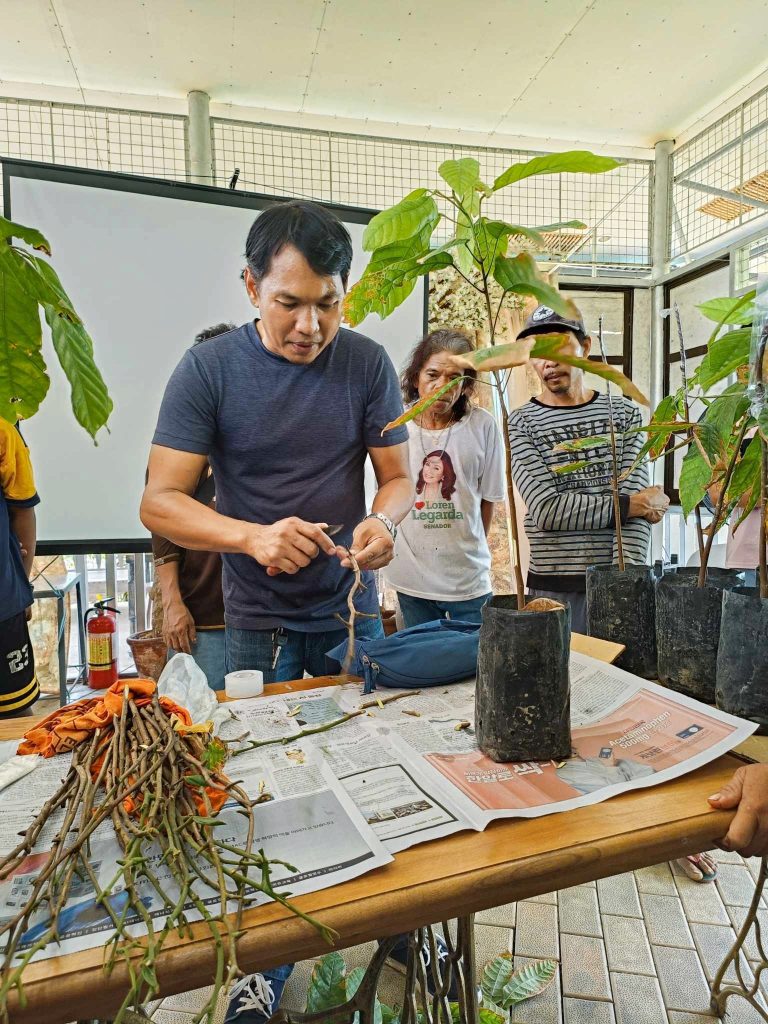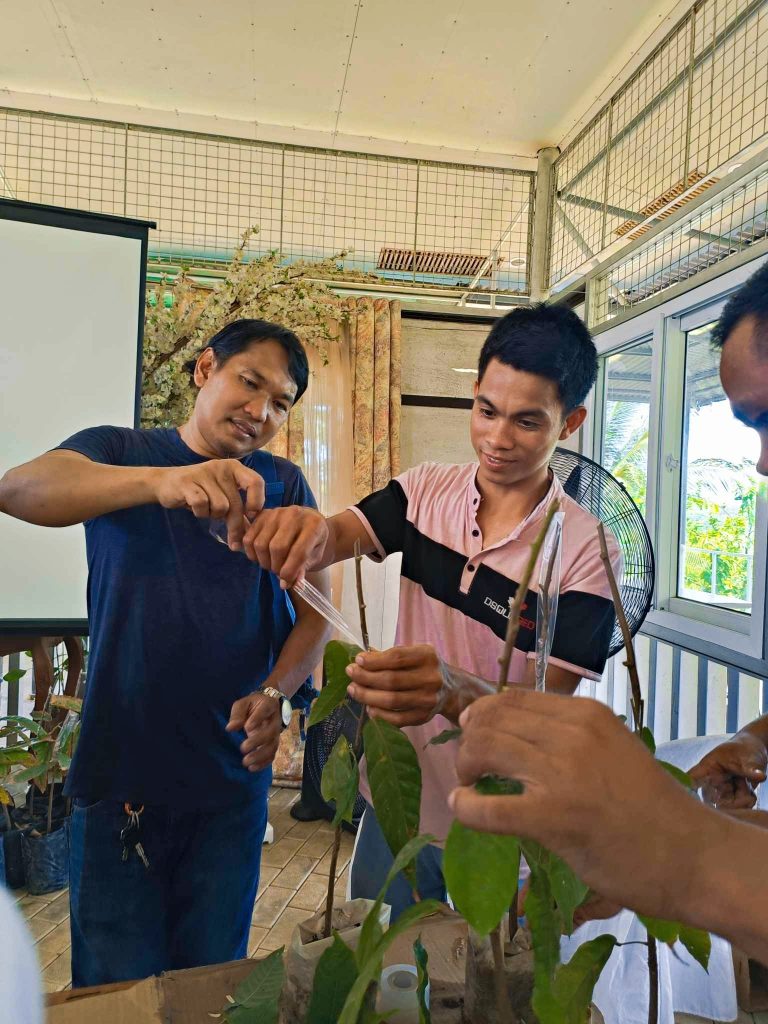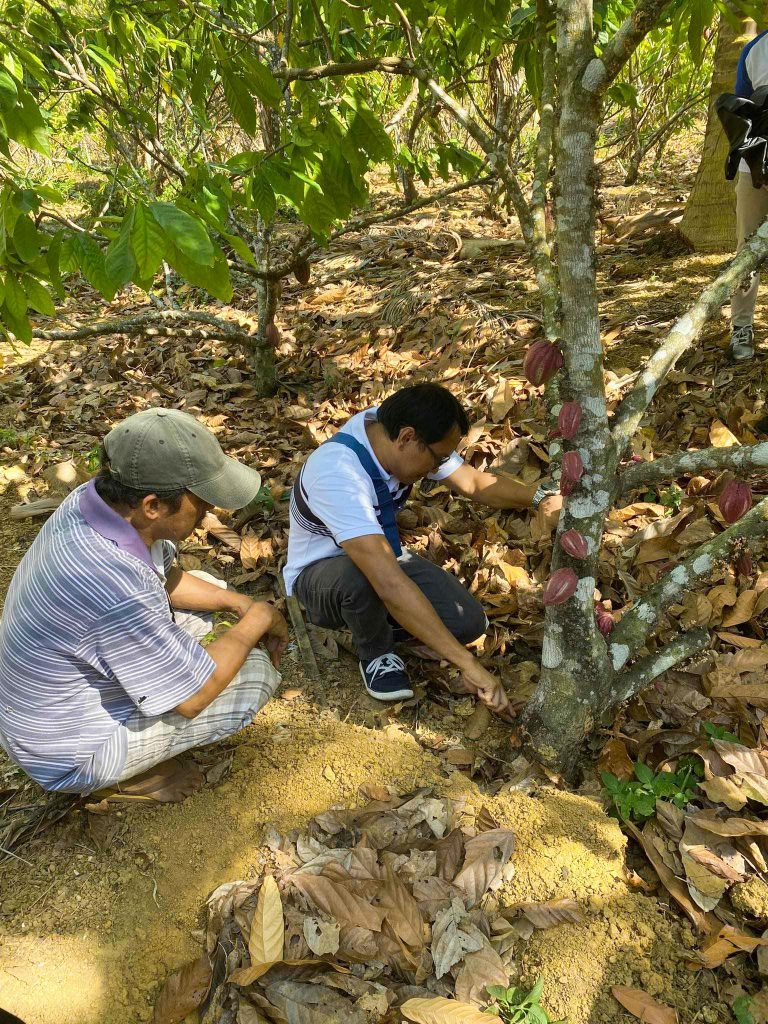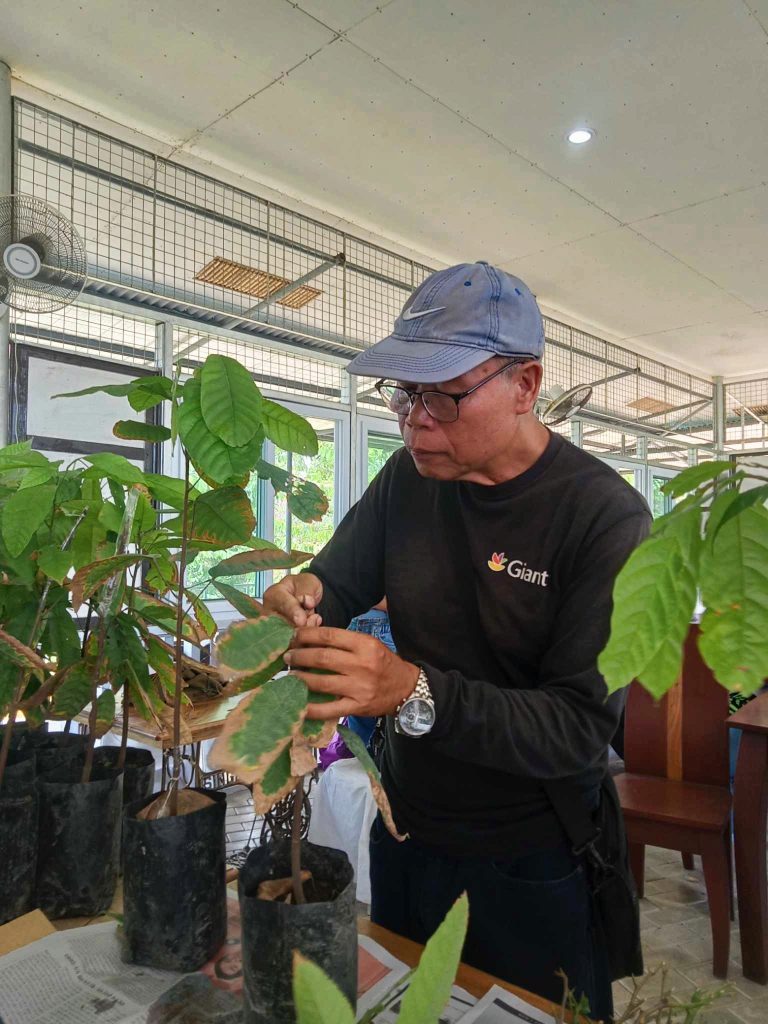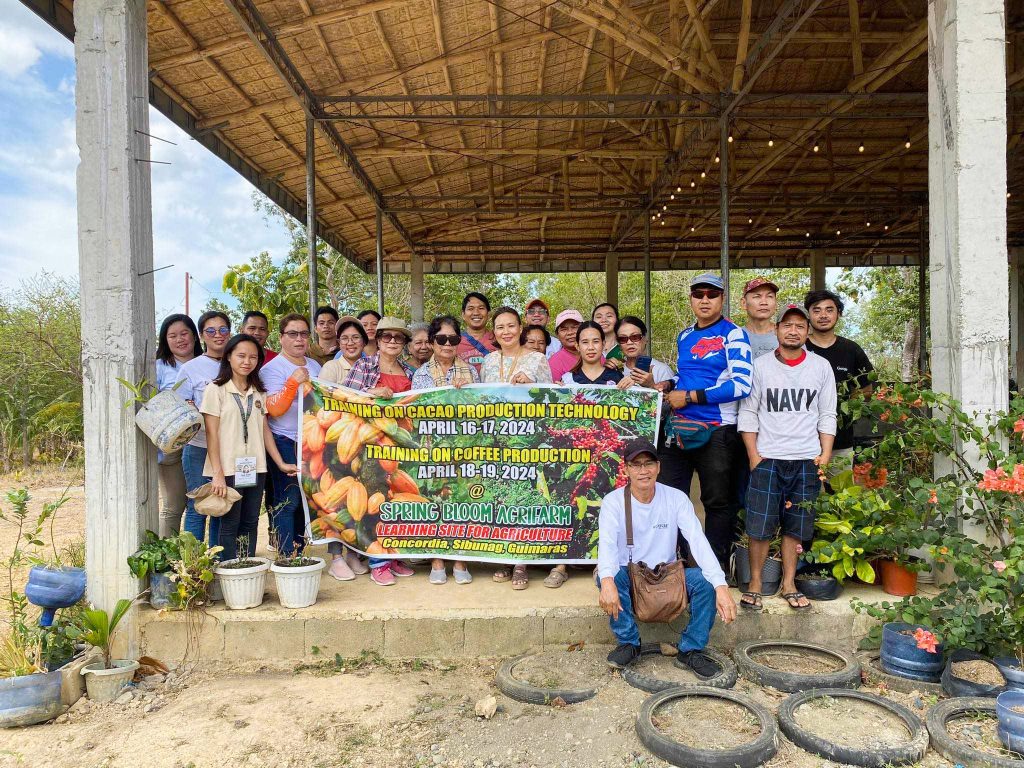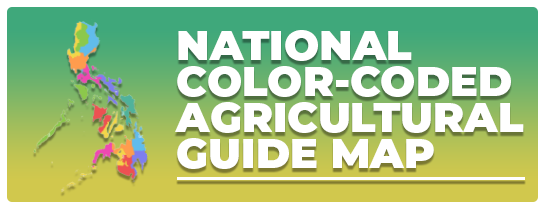DA-WV empowers Guimaras farmers to boost cacao production
Posted by: RAFIS DA6 | Posted at: April 22, 2024
In an effort to strengthen Guimaras’ economy through agricultural innovation, the Department of Agriculture – Western Visayas High Value Commercial Crops Development Program (DA-HVCDP) partnered with the Provincial Office for Agricultural Services (POAS) for a two-day Package of Technology (POT) Training on Cacao Production held at the Spring Bloom Agri Farm Learning Site for Agriculture in Concordia, Sibunag, Guimaras, designed to deepen farmers’ understanding and practical skills in cacao cultivation.
DA-WV Regional Cacao Coordinator Relvin Paragua led the two-day training on April 16-17 and focused his discussion on the critical aspects of cacao production such as optimal planting techniques, effective pest and disease management, and post-harvest handling.
On the other hand, DA-Soils Laboratory Agriculturist I Rhyll Joy Balinas complemented the sessions with invaluable discussions on soil sampling, underscoring the importance of precision for reliable outcomes.
Thirty cacao enthusiasts from Guimaras province eagerly participated, immersing themselves in hands-on activities and engaging field visits to prominent cacao grower farms at Paquito Farm at San Antonio, Nueva Valencia, and Judy’s Eco Farm at Aguilar, San Lorenzo. Through these experiences, the participants not only gained insights into industry best practices but also developed a comprehensive understanding of day-to-day farm management strategies.
By equipping local farmers with enhanced knowledge and practical skills, the program catalyzes economic growth on multiple avenues such as: increased productivity in cacao cultivation directly translates to higher yields and improved incomes for farmers, thereby boosting household economies and rural livelihoods; the adoption of industry best practices enhances the quality and marketability of Guimaras’ cacao produce, positioning it competitively in both domestic and international markets; and the cultivation of cacao contributes to diversifying the farming environment, reducing dependency on traditional crops and mitigating risks associated with mono-cropping.
Moreover, the training instilled a collective passion for cacao cultivation, fostering a spirit of empowerment and determination among cacao growers. This newfound enthusiasm serves as a driving force for innovation and collaboration within the local agricultural community, further amplifying the program’s impact on economic development. (By: MSSubang/DA-RAFIS 6 with reports from JVelagio/POAS Guimaras | Photo Credits: JVelagio/POAS Guimaras)


